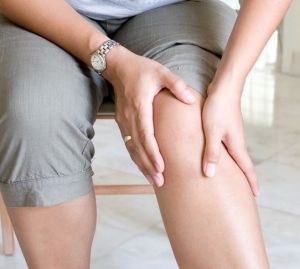 EXETER, NH – Osteoarthritis is a common chronic disease that affects over 25 million American adults. Some physicians believe that sport participation may increase the risk of OA, but it isn’t clear whether this is due to a particular sport, a sport-related injury, or some other unknown factor. However, experts have learned that some sports involving twisting, turning and jumping, like soccer and wrestling create high biomechanical forces on the knee joint.
EXETER, NH – Osteoarthritis is a common chronic disease that affects over 25 million American adults. Some physicians believe that sport participation may increase the risk of OA, but it isn’t clear whether this is due to a particular sport, a sport-related injury, or some other unknown factor. However, experts have learned that some sports involving twisting, turning and jumping, like soccer and wrestling create high biomechanical forces on the knee joint.
The Journal of Athletic Training conducted a review to determine which sports were associated with knee osteoarthritis. Researchers from Tufts Medical Center in Boston, Centers for Disease Control and Prevention and Temple University in Philadelphia contributed to the review, which found that patients who have participated in soccer, elite-level long-distance running, weight lifting, and wrestling all had increased prevalence of knee osteoarthritis.
Access Sports Medicine & Orthopaedics’ Sports Medicine Director and knee specialist, Dr. Joshua Siegel, says there are other factors to determining whether certain sports contribute to knee osteoarthritis, such as family history, level of competitiveness, exposure hours, and many others.
“As physicians we can unequivocally state that athletic participation, regardless of sport, has benefits that far outweigh risk of knee osteoarthritis over the participant’s lifetime. Participation in athletic activities, especially throughout childhood, teaches children the health and well being attributes of a healthy lifestyle that no other way can. Although certain activities may be more risky than others, the risks of inactivity and a sedentary lifestyle are well documented to be detrimental to physical and mental health,” he said.
Dr. Benjamin Thompson agrees, saying these case control studies need to be taken with a grain of salt.
“Of course patients with past history of knee injury are more prone to OA, but that should apply to any sport. What is surprising is that soccer was higher up on the list than football, which goes against everything that I know clinically. My counseling to patients based on this article alone would be that they should not be discouraged to play sports based on a .4% higher risk of OA alone,” he said.
To read the entire review, click here.

